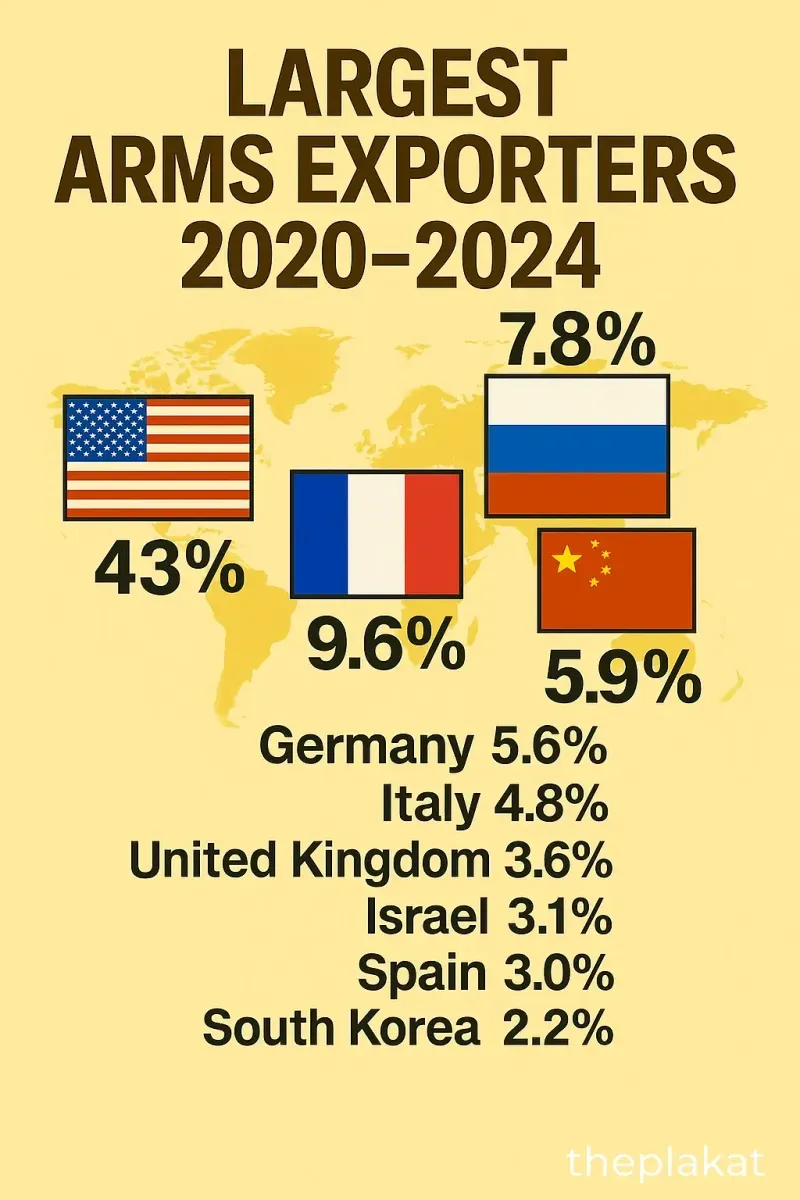Published
in Economy
The United States led global arms exports between 2020 and 2024, accounting for 43% of the world's total. Following were France, Russia, and China, with notable shifts in their export volumes. This article delves into the dynamics of international arms trade during this period.
From 2020 to 2024, the United States maintained its position as the world's leading arms exporter, contributing 43% to global exports. This dominance is attributed to its extensive defense industry and widespread geopolitical alliances.
France emerged as the second-largest arms exporter with 9.6%, overtaking Russia, which experienced a significant decline to 7.8%. The shift reflects changes in global demand and geopolitical relationships.
China held the fourth position with 5.9% of global arms exports. While its share remained stable, China's focus on domestic military advancements influenced its export strategies.
Germany (5.6%), Italy (4.8%), United Kingdom (3.6%), Israel (3.1%), Spain (3.0%), and South Korea (2.2%) also featured among the top exporters. Each country's export figures reflect their industrial capacities and foreign policies.
Countries outside the top ten collectively accounted for less than 1% of global arms exports. This category includes nations with emerging defense industries or limited export activities.
Arms exports encompass a range of military equipment, including aircraft, naval vessels, armored vehicles, and weaponry. These exports play crucial roles in international relations, defense strategies, and economic considerations.

The United States was the largest arms exporter during this period, accounting for 43% of global exports.
France's increase in arms exports and Russia's decline, due to various geopolitical factors, led to France overtaking Russia in global rankings.
Arms exports include military aircraft, naval ships, armored vehicles, missiles, and other weaponry used for defense and combat operations.